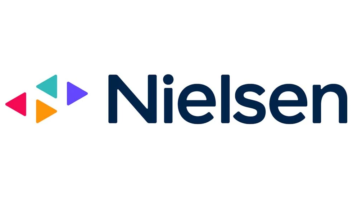(Click to Enlarge)
The power of Spotify and similar online music services lies in the users’ ability to select and hear the songs they like, and skip those they don’t, all in real time. It’s a flexibility that a conventional radio station can’t offer, online or over-the-air.

Michael Robertson’s new site RadioSearchEngine.com is aimed at levelling the playing field for online radio. It provides Spotify-like song selection to online music listeners while using online radio stations (broadcast and Internet-only) as the music source.
The user enters the desired song — say Miley Cyrus’ “Wrecking Ball” — into the search bar and the site finds and lists links to the online stations playing it at the time when the user searches for it.
The links list is organized by how many times each station has played the song. The top spot is reserved for the radio station that has played the least of the song so far, the second-least played in second place, and so forth. This page also lists which Miley Cyrus songs are being aired now on the right side of the screen, and the top 20 songs in this genre on the left; all with clickable links. (See the screenshot above.)
Should RadioSearchEngine.com not find “Wrecking Ball” playing online, it will then analyze the song’s genre to suggest radio stations that play similar songs. In this way, the user stays tuned to online radio.
UNEXPECTED APPLICATION
Robertson is also founder and CEO of DAR.fm, a free website that allows users to record their favorite radio shows and store them online for playback later at the user’s convenience. According to Robertson, DAR.fm has 90,000 registered members and tens of thousands of unregistered users accessing the site weekly; Robertson declined to release revenue numbers.
“I created DAR.fm to provide a PVR-like capability to online radio programs,” said Robertson. “To do this, we had to create and constantly update a database of online Web stations, so that we could link to these programs. In doing so, we created the infrastructure to support RadioSearchEngine.com.”
In cyber-speak, Robertson has created software “spiders” constantly searching the Web for online radio stations, verifying that they are on and recording what content they are playing. It is this data that RadioSearchEngine.com accesses to find specific artists, songs, genres and shows. (He has also built a simpler site that tracks talk radio shows using a schedule, called www.ubertalk.com.)
“RadioSearchEngine.com is perfect for people seeking music on their desktop PCs; especially when at work,” Robertson said. “It also lets you go directly to the next song you want whenever you want to. There are no limits on skips as there is on Pandora.com, and you don’t have to pay a subscription fee to avoid commercials; just select your next song and you’re gone.”
At the same time, there is no requirement for RadioSearchEngine.com users to move away from a station if they want to stick with it. The choice is theirs, at no charge.
PROS AND CONS
By providing free online access to listeners’ favorite songs and shows, RadioSearchEngine.com may be a viable alternative to Pandora and other streaming audio services, particularly those that require paid subscriptions to avoid ads and skipping limits.
“It can also be a boon to broadcasters who are trying to reach a wider audience,” said Robertson. “For instance, top 40 stations can really cash in on a new song’s global popularity, by putting it in high rotation for the world to hear.”
The downside to RadioSearchEngine.com is that it is reliant on radio stations to play the songs that Web surfers want to hear. This is no problem if the target audience is into Miley Cyrus and other pop stars whose songs are widely played. But it could be an issue if the song being sought is obscure, like Ian Dury’s “Hit Me With Your Rhythm Stick.” (That said, more people listen to pop songs than obscure songs, so RadioSearchEngine.com is on the right side of the equation here.)
Another limitation is that the system can only report what songs are available when they are already being played. This means that the user will never get to hear a desired song right from the beginning.
“The song is usually about 34 seconds in by the time our users can access it,” Robertson said. “That said, many song beginnings are just music beds that deejays talk over anyways. Tuning in later means you’re closer to the song’s hook.”
THIRD-PARTY REACTION
Radio World asked three observers — Fred Jacobs, Tim Davis and James Cridland — for their views about RadioSearchEngine.com.
Jacobs and Davis are president and director of digital at the radio consultancy Jacobs Media (www.jacobsmedia.com). Cridland is managing director of Media UK who speaks often on Internet radio. All three tried the site then sent us their assessments.
Davis sees Radio SearchEngine.com as “a cool concept that allows you to find virtually any song on the radio at any given moment in time. It also puts pure-plays on a level playing field with terrestrial streams, so everyone’s pretty equal.”
Jacobs said RadioSearchEngine.com’s song search function can help online listeners discover new radio streams online. “You start by typing in a song, and then you end up on a stream that you probably didn’t know about,” he said “You just might find a channel you enjoy — or not.”
Cridland rated RadioSearchEngine as being “potentially very interesting. But I’m also not sure that the current use-case is the right one,” he said. “If I want to hear ‘Wrecking Ball’ by Miley Cyrus, I can find it on YouTube. I can hear it from the beginning … so I can’t see why anyone would want to listen to the last half of the song.”
“It’s problematic that you rarely or ever hear a song from the beginning,” said Davis. Cridland added: “Song choice is limited. Unlike YouTube where seemingly everything is there, deeper, niche-ier songs just won’t show up if no one’s playing them at that moment in time.”
Robertson’s response: “If you want to listen to a single song and don’t mind a pre-roll video, then YouTube is great. But if you want to listen to continuous music, then it’s not a good experience.”
Like DAR.fm, Robertson describes RadioSearchEngine.com as in its start-up phase. “We are still considering ways to monetize this tool,” he said. “Right now, we are just trying to understand its potential, and how people are using it.”
The service seems like something that stations can pitch to their listeners online, especially group owners who have many stations turning up in the site’s music searches. After all, the music provided here is free, unlimited and all sourced from stations, not streaming audio companies like Pandora.
RadioSearchEngine.com may not keep online listeners loyal to any given radio station. But it may make them more likely to keep contact with radio as a whole, rather than finding their music elsewhere.







